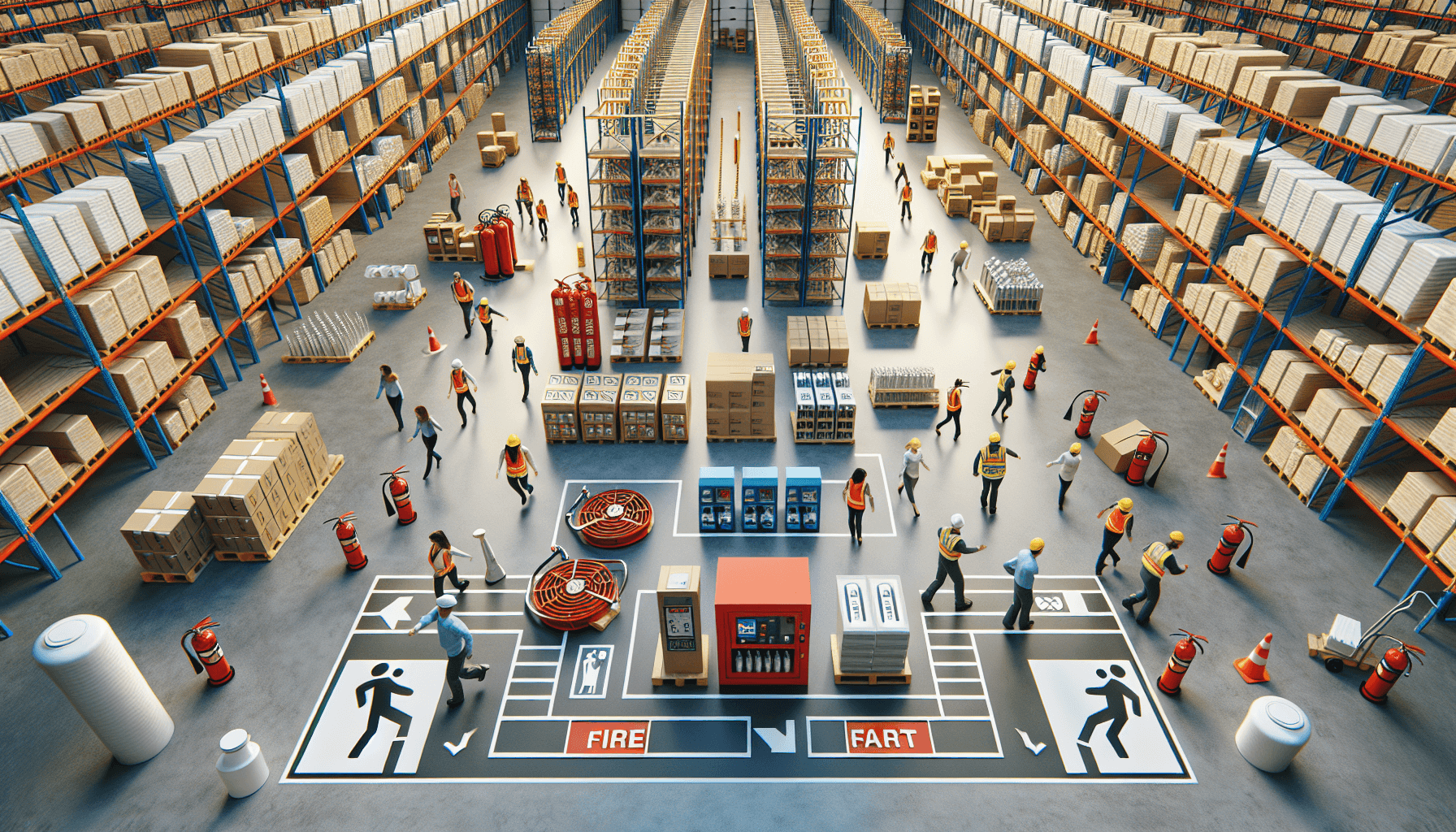When it comes to running a warehouse, fire safety should be a top priority. Fires can cause extensive damage, put employees at risk, and disrupt business operations. By taking proactive measures and regularly evaluating fire safety in your warehouse, you can minimize the risk of fires and ensure the well-being of your staff and assets. In this article, we will discuss how to evaluate fire safety in your warehouse and implement effective fire prevention strategies.
Conduct a Fire Risk Assessment
The first step in evaluating fire safety in your warehouse is to conduct a thorough fire risk assessment. This assessment will help you identify potential fire hazards and assess the effectiveness of current fire prevention measures. It should include a comprehensive review of your warehouse layout, storage systems, electrical systems, and any other factors that could contribute to a fire.
During the assessment, be sure to:
- Identify potential sources of ignition such as open flames, electrical equipment, and hot work.
- Analyze the storage and handling of flammable and combustible materials.
- Evaluate the effectiveness of fire detection and suppression systems.
- Assess the availability and accessibility of fire extinguishers.
- Review emergency evacuation plans and procedures.
By conducting a thorough fire risk assessment, you will have a clear understanding of the fire hazards in your warehouse and can take appropriate measures to mitigate the risks.
Ensure Proper Fire Detection and Suppression Systems
Having reliable fire detection and suppression systems is critical for warehouse fire safety. These systems can help detect and control fires before they have the chance to spread and cause significant damage. As part of your evaluation, you should:
- Check that smoke detectors and fire alarms are installed in appropriate locations throughout the warehouse.
- Ensure that the fire alarm system is connected to a monitoring service that will automatically alert emergency responders.
- Verify that sprinkler systems are functioning correctly and are regularly inspected and maintained.
- Consider installing additional fire suppression measures such as fire curtains or foam systems in areas with higher fire risks.
Regularly testing and maintaining these systems is crucial to ensure they will work effectively in the event of a fire.
Evaluate Electrical Safety Measures
Faulty or overloaded electrical systems are a common cause of warehouse fires. To evaluate the electrical safety measures in your warehouse:
- Inspect electrical panels, outlets, and wiring for any signs of damage, wear, or overheating.
- Make sure that all electrical equipment and machinery is properly grounded.
- Train employees on safe electrical practices, such as not overloading circuits and promptly reporting any electrical issues.
- Consider implementing regular electrical equipment inspections and preventive maintenance programs.
Regularly evaluating and maintaining your electrical systems will help prevent electrical fires and keep your warehouse safe.
Employee Training and Education
Proper training and education play a crucial role in fire safety in the warehouse. It is important to ensure that all employees are aware of fire hazards, know how to use fire extinguishers, and understand evacuation procedures. Consider:
- Providing regular fire safety training sessions for all warehouse staff.
- Creating a fire safety manual or guide that employees can refer to.
- Conducting fire drills to practice emergency evacuation procedures.
- Encouraging employees to report any fire hazards or potential issues they notice.
By investing in employee training and education, you can create a culture of safety and empower your staff to take appropriate actions in the event of a fire.
Regular Fire Safety Inspections
Even after conducting a thorough fire risk assessment, it is important to regularly inspect and evaluate fire safety measures in your warehouse. Consider implementing a schedule for:
- Inspecting fire extinguishers to ensure they are in proper working condition and are accessible.
- Testing and maintaining fire detection and suppression systems.
- Reviewing and updating emergency evacuation plans and procedures as needed.
- Conducting follow-up assessments and addressing any identified deficiencies.
Regular inspections will help you stay proactive in maintaining fire safety and address any issues before they become a significant risk.
By following these steps and regularly evaluating fire safety in your warehouse, you can significantly reduce the risk of fires and protect your employees, assets, and business operations. Remember, fire safety should be an ongoing priority, and continuous improvement is key to ensuring the highest level of protection.
For more information on warehouse safety evaluations, check out our comprehensive Warehouse Safety Evaluation Guide.

